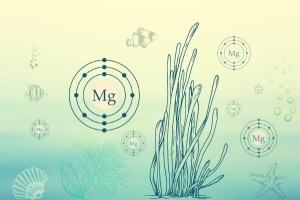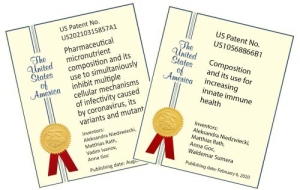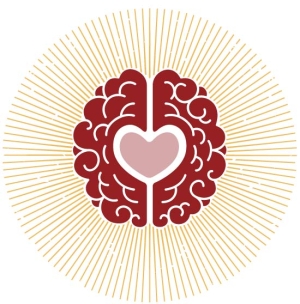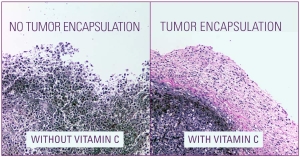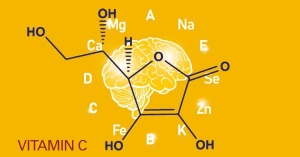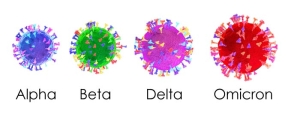Lyme disease, also called Borreliosis, is a tick born bacterial infection and is the most common vector born disease in the United States and Europe. It is caused by the bacterium of the Borrelia species which is carried by the ticks from animals to humans. Due to unspecific flu-like symptoms including headache, fatigue, low grade fever, rash and joint pains, it is hard to diagnose and treat Lyme disease at an early stage. If the bacteria is not eliminated more symptoms develop that can last for months or years and significantly reduce an individual’s quality of life. Various antibiotics are not fully effective especially against latent forms of the bacteria and also add the risk of side effects.
Magnesium is the fourth most abundant mineral in our body and while it is critical in human health, its role is highly underappreciated.
Our diet provides less than half of the recommended daily allowance of 320-420mg/day and 50-75% of the population is chronically magnesium deficient. Magnesium deficiency has been associated with advanced age, stress, excessive alcohol consumption, smoking, and diseases affecting the digestive tract, liver, and kidneys. Drugs such as diuretics further remove the available magnesium in the body. Magnesium deficiency is not easy to identify because it lacks specific symptoms. It can manifest as dizziness, difficulty in concentration, irritability, fatigue, anxiety, depression, constipation, headaches, and muscle cramps.
The prostate gland is a part of the male reproductive system. This small gland is approximately the size of a walnut and is located deep inside the pelvis below the urinary bladder and above the muscles of the pelvic floor. The prostate gland plays an important role in reproduction by contributing prostatic fluid into the semen, giving the semen its fluidity. The seminal fluid in turn helps in the survival and mobility of the sperm. The prostate gland is also important for the conversion of the male sex hormone testosterone to its biologically active form.
The winter months are usually marked by an increase in influenza cases all over the northern hemisphere. This winter has seen a significant increase in cases of respiratory infections including influenza, a continued rise in cases of COVID-19, and the additional threat from respiratory syncytial virus (RSV) infections. This combination of three respiratory viruses, or “triple threat” which is also referred to as “tripledemic,” is a cause of concern for many. RSV is typically a mild infection causing cold and congestion. It is common in infants, the elderly, and people with a compromised immune system, and is the most common cause of respiratory complications including bronchitis and pneumonia in this population.
Coenzyme Q10 (CoQ10), or ubiquinone, is a fat-soluble compound produced internally in humans and animals, but often in limited amounts. The name ubiquinone reflects “ubiquitous” presence of this compound in all living beings and its chemical structure containing benzo ”quinone”.
CoQ10 is required in smaller amounts as compared to many vitamins and minerals, however, it is essential for healthy function of all tissues and organs in our body. It is an important cofactor in the mitochondrial energy cycle to generate bioenergy molecules (ATP) through aerobic respiration in every cell.
October is designated as Breast Cancer Awareness month. With the exception of skin cancer, breast cancer is the most common cancer in women in the US, and about 1 in 8 women are likely to develop it during their lifetime. According to 2022 estimates, approximately 339,250 new cases of breast cancer will be diagnosed in women, and 2710 new breast cancers will be diagnosed in men in the USA. Although, breast cancer is rare in males it still contributes to 1% of all breast cancers and this number is rapidly increasing. Due to lack of awareness regarding male breast cancer, it is often diagnosed at a later stage and is therefore difficult to treat.
With life expectancy increasing all over the world, there is a significant increase in age-related health issues. Complications related to cardiovascular disease, cancer, and dementia are some of the most common causes of death in adults over 65. September is World Alzheimer’s Month, an annual campaign promoted by Alzheimer’s Disease International.
More than two years after the start of the COVID-19 pandemic that claimed up to 6.5 million deaths, the world is still struggling to find an effective solution to preventing this infection. Despite global spending of roughly $100 billion (a figure that could rise to $160 billion by 2025) on the COVID-19 vaccines, currently used vaccines are not effective against preventing infections and viral spread and can only lessen severe symptoms of COVID-19. SARS-CoV-2 has been undergoing numerous mutations and currently about 90% of COVID-19 cases involve the Omicron variant. Although these variant infections are less severe than caused by the original strain, Omicron spreads faster and is dangerous for the immunocompromised and high-risk individuals.
In our previous Health Science News Page, we discussed that although biological changes in the female body such as puberty, menstruation, pregnancy, lactation, and menopause are natural, they represent major physiological transitions. They are accompanied by both changes in the body appearance as well as the functioning of various organs including the nervous, cardiovascular, and immune systems which undergo several changes under the influence of hormones. Many of these changes make women more prone to autoimmune diseases, cardiovascular problems, mental health issues, and others, and require appropriate nutritional support to mitigate or prevent these problems.
The nutritional requirements of men and women are very different. A woman’s body needs extra nutritional support during various physiological transitions such as puberty, monthly menstruation, pregnancy, lactation, and menopause. Women are affected by different health problems than men. Autoimmune diseases, arthritis, osteoporosis, and depression are diagnosed more frequently in women. Despite popular belief that heart disease develops mainly in men, 1 in 4 menopausal women dies from heart disease making it the major cause of death in American women. In order to function optimally the female body needs specific nutrients to provide bio-energy to the cells of the nervous, immune, cardiovascular, and endocrine systems.

